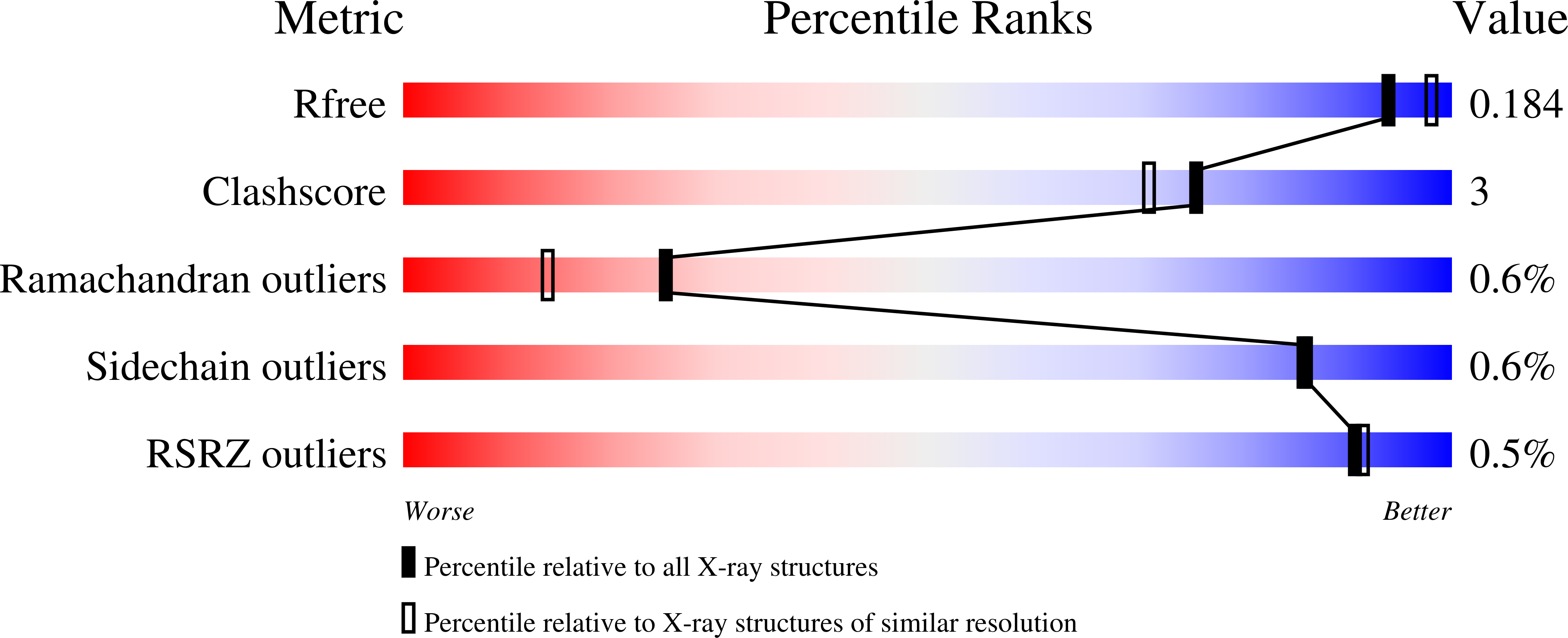Introducing Endo-Xylanase Activity Into an Exo-Acting Arabinofuranosidase that Targets Side Chains.
Mckee, L.S., Pena, M.J., Rogowski, A., Jackson, A., Lewis, R.J., York, W.S., Krogh, K.B.R.M., Vikso-Nielsen, A., Skjot, M., Gilbert, H.J., Marles-Wright, J.(2012) Proc Natl Acad Sci U S A 109: 6537
- PubMed: 22492980
- DOI: https://doi.org/10.1073/pnas.1117686109
- Primary Citation of Related Structures:
3ZXJ, 3ZXK, 3ZXL - PubMed Abstract:
The degradation of the plant cell wall by glycoside hydrolases is central to environmentally sustainable industries. The major polysaccharides of the plant cell wall are cellulose and xylan, a highly decorated β-1,4-xylopyranose polymer. Glycoside hydrolases displaying multiple catalytic functions may simplify the enzymes required to degrade plant cell walls, increasing the industrial potential of these composite structures. Here we test the hypothesis that glycoside hydrolase family 43 (GH43) provides a suitable scaffold for introducing additional catalytic functions into enzymes that target complex structures in the plant cell wall. We report the crystal structure of Humicola insolens AXHd3 (HiAXHd3), a GH43 arabinofuranosidase that hydrolyses O3-linked arabinose of doubly substituted xylans, a feature of the polysaccharide that is recalcitrant to degradation. HiAXHd3 displays an N-terminal five-bladed β-propeller domain and a C-terminal β-sandwich domain. The interface between the domains comprises a xylan binding cleft that houses the active site pocket. Substrate specificity is conferred by a shallow arabinose binding pocket adjacent to the deep active site pocket, and through the orientation of the xylan backbone. Modification of the rim of the active site introduces endo-xylanase activity, whereas the resultant enzyme variant, Y166A, retains arabinofuranosidase activity. These data show that the active site of HiAXHd3 is tuned to hydrolyse arabinofuranosyl or xylosyl linkages, and it is the topology of the distal regions of the substrate binding surface that confers specificity. This report demonstrates that GH43 provides a platform for generating bespoke multifunctional enzymes that target industrially significant complex substrates, exemplified by the plant cell wall.
Organizational Affiliation:
Institute for Cell and Molecular Biosciences, Newcastle University, The Medical School, Newcastle upon Tyne NE2 4HH, United Kingdom.















